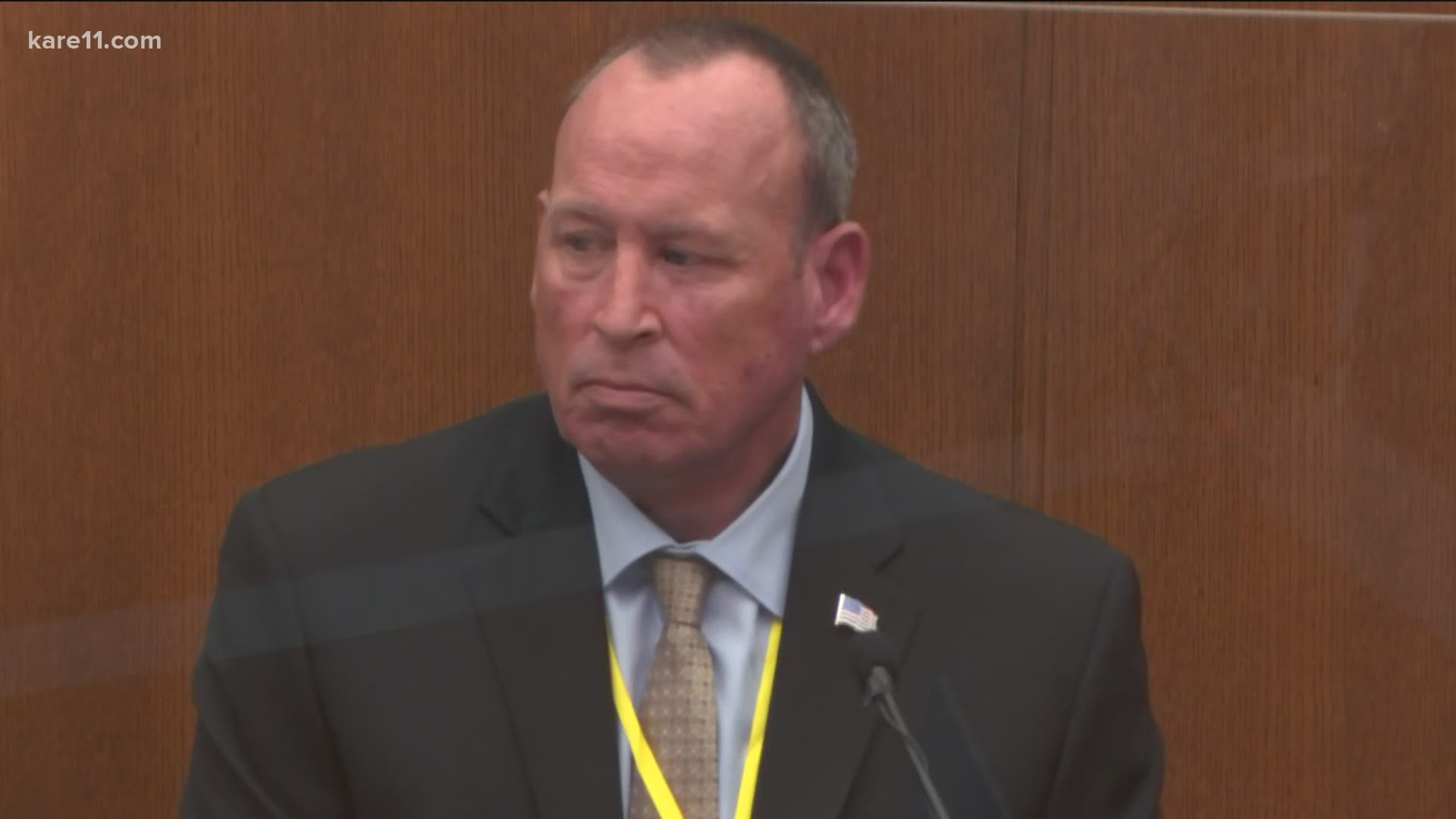MINNEAPOLIS — The defense team in the trial of former Minneapolis police officer Derek Chauvin started laying out its case Tuesday after the state rested, starting with limited testimony on a prior arrest of George Floyd roughly one year before his death.
Chauvin's attorney Eric Nelson called two witnesses to testify on Floyd's arrest in May of 2019 arrest: retired Minneapolis officer Scott Creighton and retired Hennepin County paramedic Michelle Moseng.
Judge Peter Cahill told the jury they can only use the testimony as evidence of the effect opioids might have had on Floyd, not as evidence about his character. The judge has limited the scope of questioning around the 2019 arrest, and only allowed a portion of body camera video of the incident to be presented to the jury.
Nelson called Creighton and Moseng to the stand as part of his argument that Floyd's death was the result of his drug use, rather than the white officer's knee on the Black man's neck.
The defense presented a portion of Creighton's body camera video of the prior arrest, in which Floyd was a passenger in an unlicensed vehicle stopped by Minneapolis police. The video shows Creighton approaching Floyd with his gun drawn, asking him to put his hands up and to exit the car.
Floyd can be heard saying, "Don't shoot me."
Floyd puts his hands in the air, and then Creighton orders him to put his hands on the vehicle's dashboard. Creighton confirmed that he forcibly put Floyd's hands on the dash.
Another officer then directed Floyd to put his hands on the top of his head.
"Open your mouth. Spit out what you've got," the officer tells Floyd.
Creighton confirmed upon cross-examination with the state that an officer had threatened to use a Taser on Floyd, and that police had begun yelling.
"It escalated real quick," Creighton testified.
In the body camera footage shown to the jury, officers eventually removed Floyd from the vehicle and handcuffed him. The portion of the video then ended after Floyd was out of the vehicle.
Prosecutor Erin Eldridge asked Creighton if Floyd was alert during the arrest.
"Sometimes he was talking. Sometimes he was mumbling. He was incoherent in my mind a lot of the time," he said.
Creighton testified that Floyd was able to walk and communicate.
The defense then called Moseng to the stand, and Judge Cahill again reminded the jury that the testimony is being presented solely to show what effects the ingestion of opioids may or may not have had on Floyd's physical well-being.
Moseng took Floyd's vitals after he was arrested by officers in 2019, before he was taken to a hospital.
She testified that Floyd told her he had been taking multiple narcotics, but that she couldn't specifically remember which opioids he ingested. She told Nelson that Floyd had taken another opioid before officers apprehended him.
Moseng testified that Floyd disclosed his history with hypertension and his opioid addiction, and that she was concerned about Floyd's high blood pressure at the time. She said she eventually took Floyd to the hospital.
Mary Moriarty, Hennepin County's former chief public defender, told KARE 11 that the defense's first witnesses actually helped the state's case.
"Once again, we saw a police officer approach George Floyd, who was sitting in the passenger seat, at gunpoint and yelling profanity at him. So it was strikingly similar to what happened on the day he died," she said.
Moriarty pointed to prosecutor Erin Eldridge's cross-examination of Moseng, in which she addressed Floyd's addiction, drug ingestion and high blood pressure.
"What they're going to argue is that even though he had consumed a large amount of drugs that day, he didn't die," Moriarty said. "He went to the hospital to get his high blood pressure taken care of, so it really was the restraint that was a substantial cause of death."

